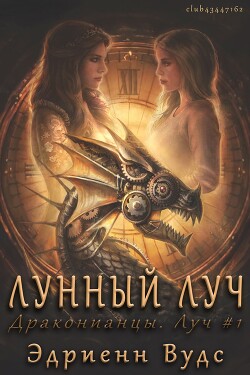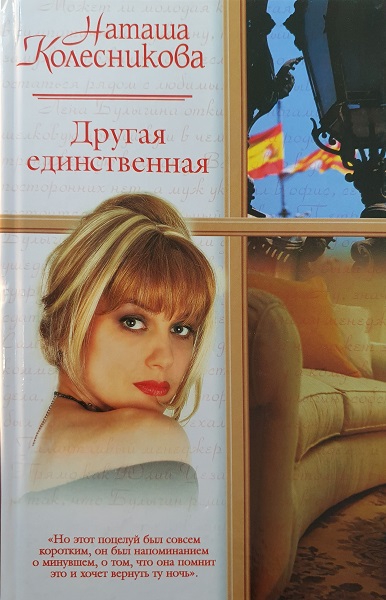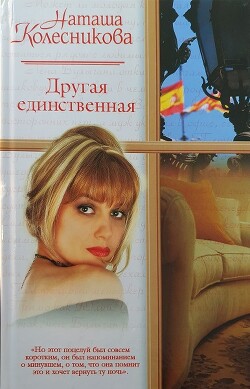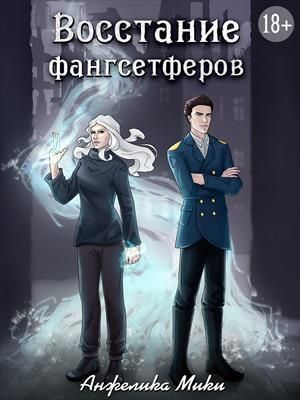Rafael Sabatini - The Curate and the Actress

Помощь проекту
The Curate and the Actress читать книгу онлайн
And who can blame him? He was an idealist, and here, in Miss Ellialine de Vaud―for so she had told him that she was named―he had found the incarnation of his ideal.
She was too innocent to understand the curate's gentle metaphor about a longer journey than that to Stollbridge, so she merely smiled and, taking him literally, told him that if he liked he might scull her up-stream as far as Widenham. And he had not the courage at the moment to put his metaphor into plainer language.
All this went on for the better part of a fortnight (during which the curate's studies and meditations were severely neglected) until at last the vicar, who was an intimate, although somewhat paternal friend of Andrew's, thought fit to administer a gentle remonstrance.
But Andrew flew as near a temper as his sanctity―rather rusty of late―would allow, and he told the vicar in plain and very much unvarnished language that he was quite old enough to choose his own companions.
"Yes, yes," replied the vicar, absorbing some of the heat which Andrew was giving out, "but it isn't that! A certain amount of example is expected from us, you know, and-well―you go out boating every day by yourself and come back accompanied, and―of course people are beginning to talk, which is very distressing!"
For a moment Andrew's sanctity deserted him wholly and the Evil One took possession of his heart, for bringing his fist down upon the table with unmistakable vehemence, he very roundly told the vicar that people might go to the devil.
The vicar's face was as interesting as a kaleidoscope at this unexpected rejoinder, and the tone in which he pointed out to Andrew that it was the earthly mission of the clergy to direct people in quite the opposite direction savoured strongly of pity.
Then he took up his hat and umbrella and with a sorrowful shake of the head, he sighingly wished Andrew good day and left him.
The saint was furious. "How dare the insidious world talk of me and my movements?" he asked himself indignantly. "And to think that even so right-minded a man as the vicar should be affected by what he heard!"
If he had been a man of the world, Andrew might have been justified in competing for a prominent place in the history of profane utterance―as it was, he could only do some remarkably strong thinking. The result was that half-an-hour later he was tearing down towards the river with a speed born of righteous indignation, and a burning desire to set matters right once and for all time.
Yes; it was the only thing to do. He was fortunately the possessor of a nice private income which would allow him to live in blissful independence, and he was determined upon asking Miss de Vaud to take him and his money to church, and marry the lot.
He found her, sitting on the grass, and looking demure in a white dress and a sailor hat―Madonna-like he thought her.
With an original comment upon the heat of the sun and the clearness of the sky, he assisted her into the boat―she accomplishing the embarkation with the orthodox display of ankle―and arranged her cushions with something more than his wonted solicitude.
Then, taking the oars again, he pulled vigorously away in the direction of Widenham. He had in his mind a certain picturesque bower formed by the overhanging boughs of a beech tree, and beneath the generous shade of this, it was his purpose to call a halt and broach the delicate subject. He could do nothing but think of what he should say―and never did a sermon give him half the trouble and anxiety―so that naturally he was strangely silent and preoccupied.
She endured this for a while; but when she had asked him for the third time whether he felt the heat, and he had answered her with a fatuous smile that he thought them very charming indeed, she deemed it time to awaken him. So giving the right rope a vicious tug, she skillfully steered him into a hawthorn bush, which, if not in bloom, was very amply in thorn―a circumstance which he appreciated, without the aid of his eyes.
As he pushed the boat back, he remarked with a sweet smile, which made his scratches bleed, that it did not signify in the least. Then a bold idea entered his mind―evoked by memories of a novel or two read in those sinful days of his boyhood―and in words which if slightly lacking in veracity, were certainly rich in poetry and fervour, he protested that for her sake he would gladly shed every drop of blood in his veins. In fact, he almost appeared to suggest that blood had been given him for no other purpose.
She blushed in the most highly approved fashion, and applied herself to a careful study of her tan shoes. Noticing this favourable sign, and finding the ice fairly broken, Andrew left the nose of the boat in the hawthorn bush where it had caught, forgot the bower half a mile further up the river, and started forthwith upon the accelerated display of amorous rhetoric.
Pale and gasping, with thumping heart and twitching hands he told his story; now halting and stammering, now plunging headlong into a torrent of verbiage and incoherence.
And she, while contemplating the pattern of her dainty shoe, dimly realised that he was asking her to become his wife. And having guessed, her heart began to beat. Not so much out of sympathy as out of dread lest he should capsize the boat before he had finished.
At last he stopped, and signified by mopping the perspiration from his forehead and the blood from his cheeks, that he had finished.
A crafty and designing woman of the world would no doubt have commented upon the suddenness of the proposal. The simple unsophisticated child before him did otherwise. Raising for a moment her soft dark eyes, and favouring him with a glance half coy half tender―
"I am so happy, Andrew," she murmured, "so happy!"
The enraptured lover would have fallen upon his knees had he not remembered in time the disastrous results which might follow upon so rash an act. He had to content himself with stretching across the boat and seizing the hand she half extended towards him.
"You love me? You really love me?" the poor boy whispered incredulously.
"More than I can tell you," she answered, casting down her eyes. Upon this followed many touching words, many sighs and many impassioned glances. But the sun will set, in spite of lovers, and presently with one more sigh, Andrew was obliged to release the boat from the bush and turn his way homewards.
He was more eager than ever to see her home, when they had landed at Stollbridge. But she insisted upon going alone, and despite his remonstrances and expressions of contempt for public opinion, alone she went.
Notwithstanding this, as Andrew Barrington made his way home, he felt himself indeed a happy man, and many were the thoughts of pleasant anticipation he bestowed upon the morrow. But the morrow brought him a perfumed note containing a disappointment. She had been suddenly called to town, she wrote, by a telegram which informed her that her dear Aunt was dangerously ill. Would he write?
He put the note down on the table. Then snatched it up, and blushing furiously be crumpled it into his pocket as the maid-of-all-work entered with his breakfast tray.
He felt better when she had gone and began to think. He drew her note from his pocket and read it again. At the word "Aunt" he came to a full stop. It suggested a family. And with the suggestion came a sickening dread that her people―whoever they might be―should oppose their union. The anxiety was too awful to be borne. He must do something. Again his eye fell upon the note. "Will you write?" Yes, he would write at once. He got the necessary materials together, and, sitting down, he pondered deeply for perhaps half an hour. At last with a sigh he took up the pen and began. He worked assiduously for an hour, and the contents of his waste paper basket grew steadily during that time. But in the end his critical spirit was satisfied, and he appended his signature to one of the most richly tinted flowers of rhetoric that ever bloomed between the leaves of a parson's blotting-pad. What he had written might have been summed up concisely into three sentences. "I love you. I shall never love anyone else. If your parents forbid our marriage I shall be disconsolate."
But, as everyone versed in such matters must know, these three sentences afford very considerable scope for elaboration. It need not, therefore, cause great surprise that by a zealous regard for detail, Andrew was enabled to cover eight pages of notepaper with closely-written matter. Although there may be many who could do better, still, for a saint, Andrew did very well.
The reply came promptly, and set him in a fever of delight. She had no parents, and therefore no wishes but her own to consult. Her Aunt was better, and she hoped to return to Stollbridge in a day or two. She loved him, and she trusted that he was devoting a little of his thoughts to her. Then came the signature "Ella"―a name which Andrew kept uttering aloud, until the maid-of-all-work disgusted him into silence by putting her head into the room and inquiring whether he had called her.
Ella would return in a day or two! And here again those novels read in early youth came to his aid, and he remembered what was expected of him. He had no time to lose, he must run up to town at once and buy the ring.
He put his hat on―a trifle jauntily for a saint―and went round to the vicarage to obtain his superior's sanction of the journey.
He had not seen the vicar since their somewhat unhappy parting of some three days ago, and it was not without a certain restlessness of mind that he entered the presence of that worthy man. The Reverend Mr. Ritson turned from the papers with which he had been occupied, to greet Andrew.
He was a man of medium height, with iron-grey hair and a rosy clean-shaven face. The levity suggested by a slight upward tilt of his nose was redeemed by the portly dignity of his figure.
"Ah, good morning, Andrew. Won't you sit down?"
Andrew sat down and dangled his hat between his knees in a nervous fashion. "I have come to ask you whether it would be inconvenient if I were to run up to town for a day or two."
"Certainly not," the vicar answered with a kindly smile. "Go by all means if you―"
Mr. Ritson stopped abruptly, and the smile died from his good-humoured lips. He suddenly remembered having learnt that Miss de Vaud had left Stollbridge two days ago. He was a man of some insight and some worldly experience, and the conclusion he arrived at by a simple process of deduction, was not flattering to Andrew. He turned his clear hazel eyes sternly upon the young man.
"Might I inquire," he said coldly, "what your motives are for going to London?"
"I was about to tell you, Sir."
"Oh!" The vicar concluded from this disposition to confess, that his apprehensions were certainly unfounded and he hastened to relax the rigorous position of his facial muscles, being anxious to make up in kindness to Andrew for the slight his imagination had for a moment cast upon the young man.
"You see, Mr. Ritson, I was twenty-four years of age I last birthday. And―and―I have been thinking about getting married." The vicar raised his eyebrows in surprise, and passing his hands under his coat tails, smiled again.
"You are thinking of marrying! Ah, well, well―a very praisewothy resolution."
Being a bachelor, the vicar was in a position to make an assertion of this character without any qualms regarding its veracity.
Andrew gathered courage from the words and explained the motive of his visit to London.
"Of course, of course," the vicar agreed, "but you haven't said anything about the lady of your choice, yet. Come, what is she like? One of my parishioners?"






















